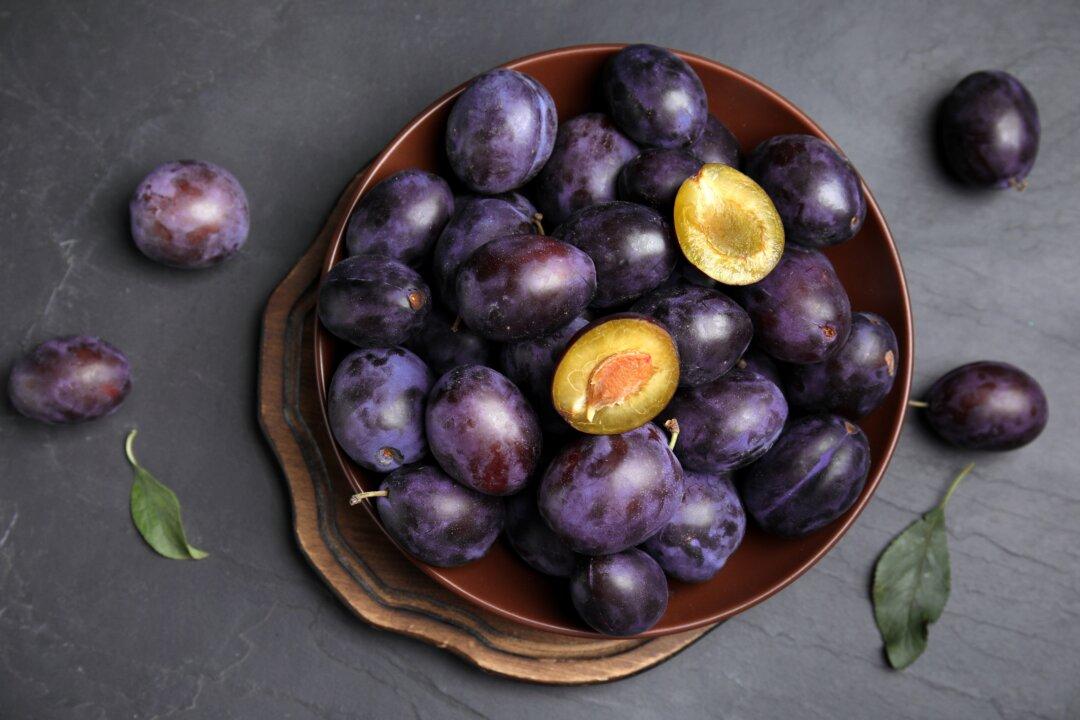More than just a juicy fruit that’s a seasonal delight in the kitchen, plums have a lot to offer in health benefits and wellness support, offering nutrients that influence everything from constipation to cognition.
They can be eaten fresh or dried, and are easily transformed into sauces, jams, and chutneys. They can also add a nice sweet touch to your meat dishes or turnovers. But plums aren’t just a tasty treat. They also offer a bevy of health-promoting properties that are hard to ignore.





